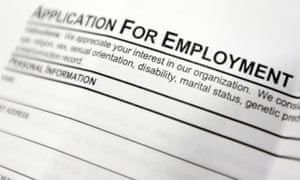
Contents
What should I do if my employer won’t provide a reference for a new job?
• How can I get a reference from an employer who just won’t provide one? I am studying, and looking forward to getting back into work once I finish the course. I’m three months away from completing my course and have had interviews. I have emailed my previous boss to provide references, but received no answer after seven days.
I admit we never got on, but I complied with all work expectations and took full responsibility for everything I did. Neither was I late or absent without permission or with a wrong attitude.
What should I do when faced with a prospective employer looking for references from my previous employer?
• I am trying to get a second reference from previous employers. One has got back to me saying they only keep records for six years and I worked in this job in 2005; the other I’m waiting on is for an employer from 1998-2005.
If I can’t get these references what are the alternatives? It might cost me my new job.
Jeremy says
Since both letters are on similar subjects, I will answer them jointly.
The reluctance of past employers to provide references to past employees seems to be becoming more common. This is mainly because employers are not obliged to provide references (unless specifically included in the original employment contract or in certain regulated occupations such as financial services); there is no advantage to the ex-employer in providing such a reference; and a growing fear of litigation for having provided a misleading reference makes companies wary of saying anything at all.
When such a refusal incurs no penalty, and when the provision potentially opens them up to legal action, it’s easy to see why companies choose to do nothing. And there’s very little the former employee, whose potential new employer is understandably demanding references, can do about it.
In the case above where 10 years or more have passed since the employee last worked for those two companies, their failure to provide references or respond to requests doesn’t seem unreasonable. Since employers can’t be forced to provide references, the frustrated employee has to think of alternatives.
In both cases, personal references can help fill the gap, and can certainly provide reassurance on questions of character – the more authoritative the referee, of course, the better. Ex-teachers or university tutors are often happy to oblige. It’s also worth thinking of senior people who have left the company you used to work for, but with whom you had a good relationship. Their endorsements can’t, of course, be official and shouldn’t pretend to be – but by assembling quite a number of such “unofficial” references you can provide substantial comfort to the recruiting company.
Readers say
• I couldn’t get a reference due to the company ceasing trading, but I got a statement of employment dates from the pension scheme they moved funds into when the company scheme closed. I then had a reference from volunteering and a personal reference. ajchm
• Just provide potential employers with contact details when asked for a reference and hope for the best. Besides, it’s not unusual for references not to be followed up. walkinginthesand
• It’s the duty of the new employer to contact the old one to confirm any information, quite often through a background check company who will go through your CV to check all your claims. whatamilike
• Ask the HR department at your previous company instead. They will normally just give confirmation that you worked there and the start and end dates. Vinnyr
My daughter’s probation service job has put her in a false and difficult position
My daughter works for the probation service. She started as a part-time receptionist and had a long commute, but early in the spring was accepted for a full-time post supporting clients in her home town.
The job has been bedevilled from the start. First, the company took well over six months to relocate her, arguing that it was designing the job package as it was a new post. She then discovered the post was designed for a probation service user, to reintroduce workplace experience. When she complained that she felt uncomfortable that she was not regarded as a bona-fide employee, her manager said she was there “to break down discrimination”. But my daughter is not a “service user” and has therefore been placed in a false position.
After doing three weeks’ training she has been placed in the local office, where she is given literally nothing to do. She’s been told she cannot offer to help other staff in any way, as that is not her job. When she tried to help a colleague with a new computer protocol that my daughter was familiar with, she was reprimanded. Her manager has simply said she should “research training opportunities on the internet”.
She desperately wants to leave, which is a shame as she entered the probation service with a keen desire to work with clients. Her position is further weakened by the fact her new role is only a short contract, whereas her previous role (taken before the probation service was privatised) was a permanent contract.
Jeremy says
As I am sure you are aware, the part-privatisation of the probation service has not been without its critics, and the National Audit Office, among others, has raised a number of concerns. It seems as if your daughter is the helpless victim of a lengthy process of organisational change that has yet to be completed.
However, it can’t be in her company’s interests that this bizarre situation is allowed to continue. I can quite understand her disillusionment and wanting to get out – but she has a vocational drive to help rehabilitate clients and I can think of no obvious alternative jobs to which she could turn.
So I believe you should encourage her to hang on in there for a little while yet. A privatised company, conscious of the need at the very least to cover its costs, is surely not going to go on paying someone to do nothing for much longer.
Readers say
• Your daughter believed she had been offered a full-time role supporting probation service users. This sounded like a good step up from being a part-time receptionist, so she accepted. Once in post it seems as if she has been mistaken for a service user herself. There must be emails and paperwork – not least an offer of employment – which can clarify what exactly was offered to her. Theresa Thomson
• Your daughter should take a long and hard look at her files in the HR department and find out how she became a “probation service user”. Her manager, by the sound of it, may not be aware that she is not. Also, you should seek legal advice. Obviously your daughter would be better off in another working environment, but I cannot see how a reference showing that she was employed as a probation service user could do her any good.
[Source:-The Guardian]


